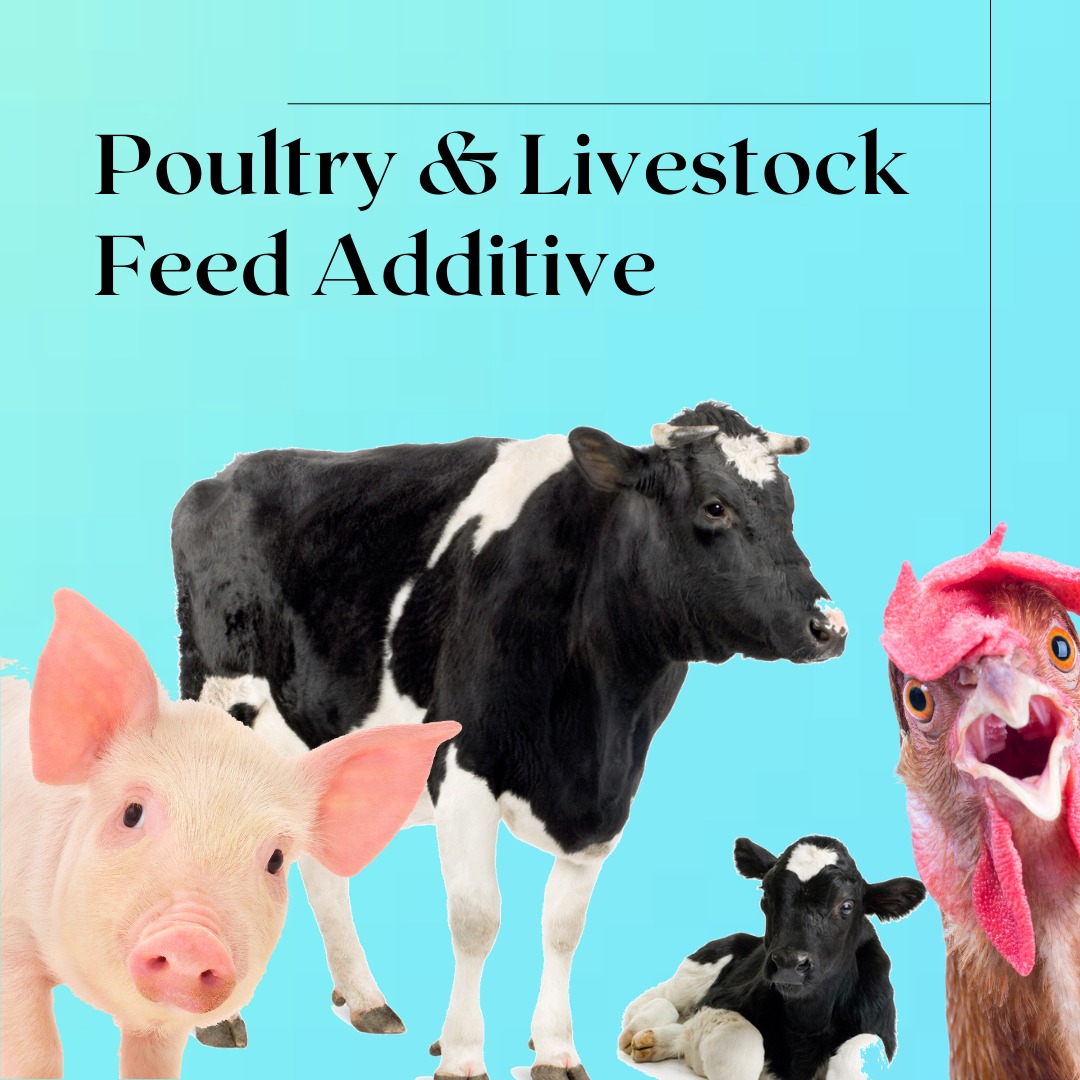A feed additive is an
additive of extra nutrients for livestock. Such additives include vitamins, amino acids, fatty acids, minerals, pharmaceuticals, fungal products and steroidal compounds. Feed additives are minor components of the animal ration and are used for improving the quality/digestibility of feed and the nutritive and aesthetic quality of food or
improving animal performance and health.
Feed additives include feeding attractants, immunostimulants,
prebiotics, probiotics, acidifiers, essential oils, or other inclusions. These additives are usually not required nutrients.
Feed attractants enhance the ingestion of feeds.
Whats App: +1 289 324-2037
sales@adelbertvegyszerek.com
Feed additives for poultry ration: Various
Feed Additives and their inclusion levels in % of poultry diet are
Trace Mineral Mixture, Vit. A, B2, D3, K, Vit. -B complex, Choline chloride, Probiotic, Enzymes, Toxin Binders, Coccidiostats, and feed additives can be added to the poultry diet.
Feed Additives that livestock farmers typically use.
Poultry Antibiotics
Poultry Feed Acidifiers
Poultry Feed Vitamins
Poultry Amino Acids
Poultry Toxin Binders
Poultry Feed Enzymes
Benefits of Feed Additives: Medicated. Some additives may contain antibiotics or others that help livestock farmers reduce the chances of their livestock becoming diseased, sick, and infected. It can also aid in growth and weight gain.
Minerals. Minerals play a pivotal role in the health of livestock and can improve weaning and conception rates, immune system response, and overall health. All of these benefits add up to a more valuable livestock investment.
Protein. Protein additives are especially popular in the cattle and beef industry. Blocks, tubs, and liquid forms of protein are all available to livestock farmers. It’s not always necessary to add protein to a livestock diet, so it’s a good idea to test and measure levels of protein intake before making a decision.
Pest Control. Pests are an ever-present nuisance for livestock farmers. They’re hardy, they breed quickly, and they spread throughout feed within days. Some additives can help to stop the lifecycle of certain pests by eliminating favorable breeding conditions.
While feed additives are most commonly referred to within their designated categories, all feed additives are divided into four main types.
Nutritional Additives. These additives supply nutrients that are missing in the natural diet of livestock.
Sensory Additives. Sensory additives often come in the form of flavoured supplements and help to increase appetite.
Antibiotic Feed Additives. These are used to fight infections, diseases, and sickness. Some livestock farmers use antibiotic additives to also promote growth.
Zootechnical Additives. Zootechnical additives help to boost the overall nutritional value of livestock diets.
Feed additives can help to improve the value of livestock by overcoming deficiencies, nutrient problems, and performance issues. Trouble in digesting feed, lack of appetite, troubled pregnancies, and weak bone structure can all be resolved. Additives are meant to improve the quality of feed so that livestock farmers can see improved animal performance and health.






